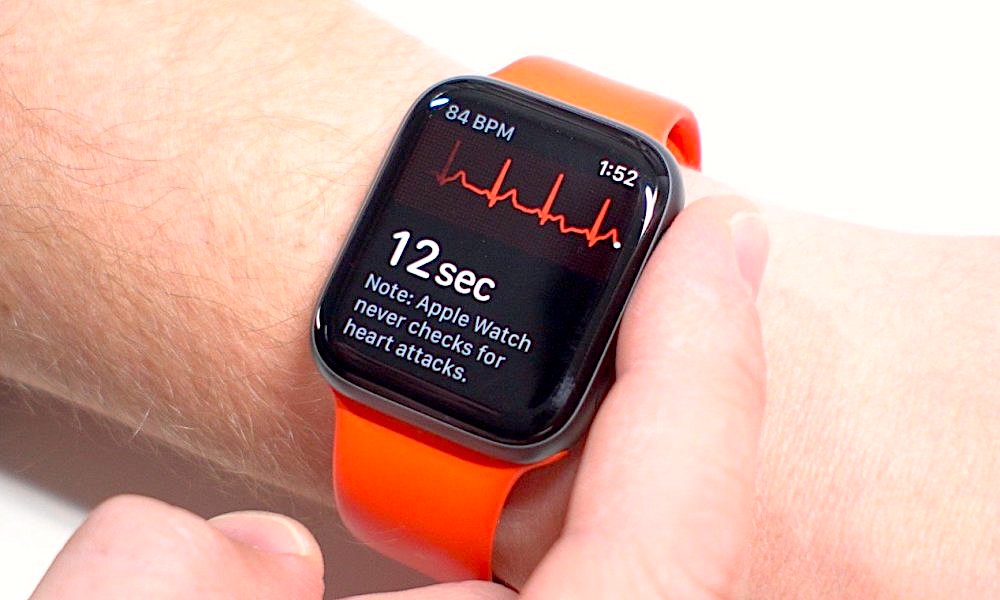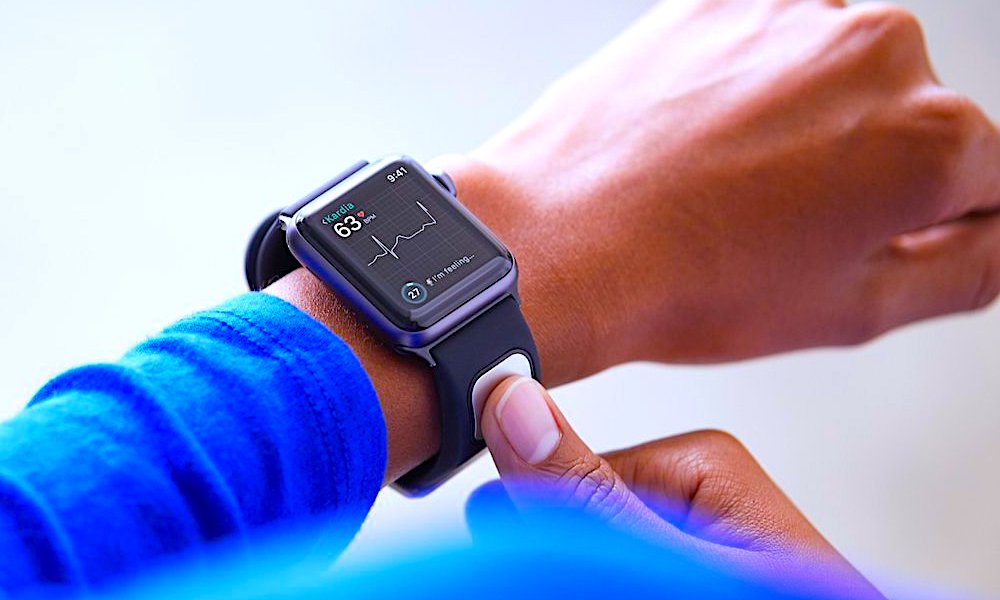The Apple Watch Still Has to Face AliveCor’s ECG Patents
 Credit: GottaBeMobile
Credit: GottaBeMobile
Toggle Dark Mode
Even if Apple ultimately prevails in its fight to prove that its Apple Watch blood oxygen sensors don’t infringe on Masimo’s patents, there’s another patent battle looming on the horizon that could ultimately turn into a one-two punch to the company.
With all the drama around the ITC’s recent Apple Watch ban, it’s easy to forget that Masimo isn’t the only company challenging the health sensors used in the Apple Watch. A second case that’s been winding its way through the courts claims Apple also played fast and loose with the ECG technology introduced in the Apple Watch Series 4 in 2018.
In 2017, a small health tech company called AliveCor released KardiaBand, the first Apple Watch accessory to be cleared by the FDA to allow users to take ECG readings.
A year later, Apple built a similar feature directly into the Apple Watch Series 4. AliveCor called foul by filing an antitrust lawsuit in 2021, accusing Apple of stealing its ideas and “behind-the-scenes acts of sabotage” in the form of watchOS changes that rendered KardiaBand’s SmartRhythm companion app inoperable.

Alongside the antitrust lawsuit, AliveCor filed a patent complaint with the US International Trade Commission (ITC), alleging that the Apple Watch ECG feature infringed upon AliveCor’s patents.
While the antitrust case was dismissed earlier this year,* the ITC ruled in AliveCor’s favor, issuing a Limited Exclusion Order (LEO) on December 22, 2022, that would have seen the Apple Watch Series 8 and Apple Watch Ultra (and any other models with ECG technology) banned from sale and import in the United States.
* Update (January 2, 2024): A representative from AliveCor reached out to iDrop News to clarify the above statement, telling us that “While the antitrust charges against Apple were dropped, AliveCor appealed that ruling and the case is now in litigation.”
If this sounds familiar, that’s because it’s almost identical to what happened in Apple’s patent dispute with Masimo, with the ITC ruling that the blood oxygen sensor in the Apple Watch Series 6 and later also infringed on Masimo’s patents.
The AliveCor ban followed a very similar road, with a 60-day Presidential review period that the Biden administration also declined to veto. However, the key difference — and the only thing that saved the Apple Watch Series 8 from being pulled from sale last spring — was that Apple managed to get a ruling from the US Commerce Department’s Patent Trial and Appeal Board (PTAB) that declared the relevant AliveCor patents invalid.
That decision effectively put the ITC ban on hold since a product can’t be banned from infringing on patents that don’t technically exist.
This puts the onus on AliveCor to prove the patents remain valid, and it’s appealing the PTAB decision to do so. Meanwhile, Apple is also still appealing the ITC ruling that ordered the ban in the first place.
Nevertheless, AliveCor is very optimistic about Masimo’s win with the ITC and believes it’s a sign of things to come. In a statement to iDrop News, an AliveCor spokesperson stood in solidarity with Masimo and praised the government for holding industry giants accountable for anticompetitive practices.
This is the second time in less than 12 months President Biden has allowed an International Trade Commission Limited Exclusion Order (LEO) to stand against imports of Apple Watches that violate the patents of small U.S. innovators. Earlier this year, AliveCor’s patent for its FDA-cleared personal electrocardiogram (ECG) technology was similarly affirmed and we share our support today for Masimo’s tenacity in its face off with Apple. Innovator companies and health consumers alike should be encouraged that industry giants are increasingly being held accountable for anticompetitive practices that would ultimately limit access to potentially life-saving technology.AliveCor
While the appeals won’t likely be heard until sometime next year, if AliveCor is successful in getting its patents validated by an appellate court and Apple fails to get the ITC ruling overturned, we could be in for another rough ride for sales of the Apple Watch Series 9 and Apple Watch Ultra 2 in the US. The next-generation Apple Watch Series 10 (or Apple Watch X) may have to make some big changes to avoid raising the ire of US regulators — changes that could include removing features like the blood oxygen and ECG sensors.







